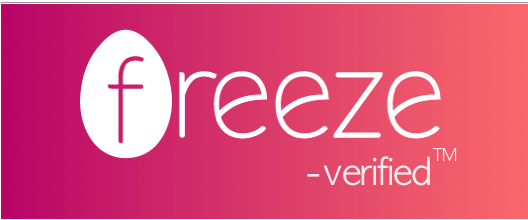Fertility Preservation
What Is Fertility Preservation
Fertility Preservation is a newer procedure that can substantially improve the chances of preserving one’s fertility after a serious illness, or for after a woman’s natural fertility declines.
Why Consider Egg Freezing
For years, egg freezing was only done for fertility preservation in cases of planned chemotherapy or surgery for removing the ovaries. It was an experimental method devised to save a woman’s fertility when she had to have treatments that would likely destroy her reproductive capability, such as chemotherapy. With the advent of vitrification, a new technique of flash-freezing eggs, better egg survival and pregnancy success rates have been demonstrated in many clinics.
It takes 100 eggs to produce one baby. A young woman has a 25% chance of conceiving each and every month. We typically suggest that a woman needs 20-25 frozen eggs to have a high chance of conceiving via IVF at a later date. (And older women probably should have even more than this.) This does not account for uterine issues or any sperm issues. If a frozen egg survives the thaw and is fertilized, then the embryo should have similar pregnancy rates to a fresh embryo. Pregnancy rates per egg frozen is estimated at 4%.

Types of Preservation
Today, egg freezing, embryo freezing, and sperm freezing are the three types of fertility preservation techniques available to fertility specialists.
Egg Freezing
Egg freezing, or vitrification, is the process of freezing a woman’s eggs in order to potentially start a family in later years. Learn More
Embryo Freezing
As couples begin to age or have medical issues, some opt for embryo freezing to ensure that fertilized embryos (rather than just eggs or just sperm) are stored for a higher chance of success in having a child later.
Egg freezing is not always successful, therefore embryo freezing is one of the better alternatives to help ensure your ability to have a child in the future. Embryo freezing with genetic testing to predetermine the viable, normal embryos is most likely to provide the best odds of conception, with an 70-80% success rate.
We recommend embryo freezing only if you and your partner are sure that you want to start a family together; otherwise, we recommend egg or sperm freezing to eliminate ethical dilemmas later.
No matter what your situation is, we want to make sure that you have the best odds of successfully conceiving a child. It’s important to consider your future family planning, and to express your needs and concerns so we can evaluate if embryo freezing is a viable option for you and your partner.
Sperm Freezing
Young men who encounter life-threatening diseases have the option to freeze their sperm to use in the future when faced with chemotherapy and other treatments that could potentially adversely affect fertility.
Once a young man has gone through puberty, he has the option to freeze his sperm. It can be stored until he needs it — often beyond 10 years or more. There is also a new technology that allows prepubescent boys to freeze specific pieces of their testicles to produce sperm for future years; however, this technology has not yet been fully proved yet.
Sperm freezing is an extremely easy process that takes little time to complete and can be helpful in preserving a man’s fertility down the line. It’s vital to discuss your male fertility preservation options with our fertility specialists to ultimately determine the best option in your situation.
Success Rates
Pregnancy rates are generally dependent on the initial age of the egg. A woman who freezes her eggs before the age of 35 should have a 45% chance that a transferred embryo will lead to a pregnancy. However, women who freeze their eggs in their late 30s or early 40s have lower chances of success, similar to IVF rates. To improve the odds of success, older women need to store more eggs if possible.
Although vitrification (egg freezing) provides promising statistics, it is not a guarantee of a future pregnancy. Even if you have frozen your eggs, when you’re ready to start a family your physician may recommend trying spontaneous conception first. Only if you were unsuccessful would you need to use your frozen eggs. You may want to preserve those eggs to attempt conception again to expand your family when you are older.
In some cases, the frozen eggs fail to survive the freeze and thaw, don’t fertilize at all or don’t develop to the blastocyst stage of embryo; these eggs cannot be used for conception. At this point, there are still alternative options including egg donation or adoption. While we recommend starting a family at a younger age to increase your options, it is important to be true to yourself and speak to your doctor to see if fertility preservation is the right choice for you.
Together, We’ll Find YOUR Way
We look forward to meeting you, learning about you, and helping you to be healthy and happy. To schedule an appointment, call the West Coast Women’s Reproductive Center at 818-986-1648 or make an appointment.
